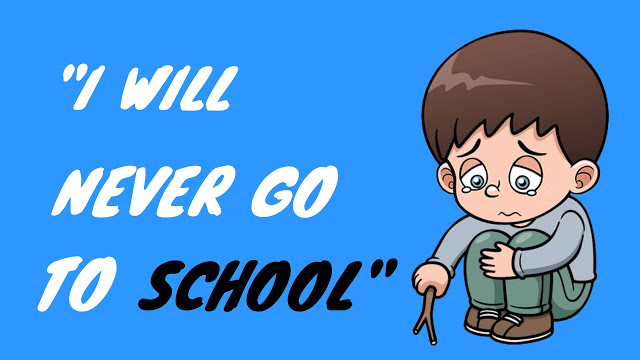School refusal describes atypical behavior of kids who refuse to go school and have problems in staying at school. According to NCBI report, around 3.6% children in India are going through school refusal. School refusal is not classified as psychiatric disorder. It is just a condition where child refuses to go to school. Children with school refusal often throw temper tantrums, cry, and face physical complaints. These complaints disappear once the school time is over.
School refusal can take place due to various reasons. There can be anxiety (social anxiety, separation anxiety or generalized anxiety) or depression in kids. 2-5% of children refuse to attend the school due to anxiety and depression.
There can be other factors such as parents’ divorce, instability in the family, emotional distress of parents which contribute to school refusal. There can be other reasons too.
School refusal always makes parents anxious, they start behaving strictly with their kids. Many times parents force children to go to school. School refusal can impact overall growth of child negatively.
How this problem can be tackled?
Before taking any action the reason must be identified. Proper assessment can help in diagnosing the problem.
The second step is to give proper treatment. Psychologists and counselors can help in this process. School refusal can be tackled with systematic desensitization, cognitive behavior therapy, setting up routine, arranging for enough sleep, enhancing social skills in children.
Schools should also treat these children with empathy. Schools can provide healthy atmosphere, trained teachers who can understand children. Parents can stay supportive to child in the whole process. Being strict with children can worsen the problem.





